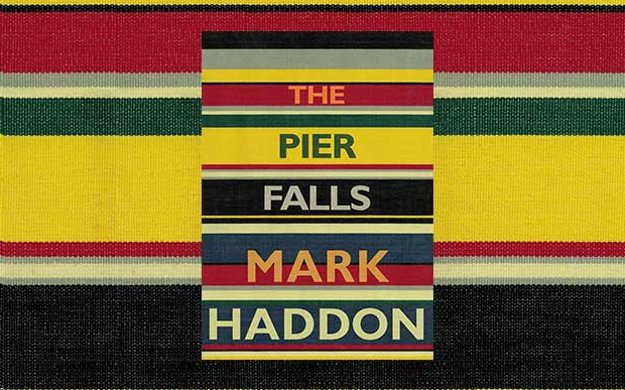Mark Haddon Displays Compelling Fiction in ‘The Pier Falls’

The Pier Falls and Other Stories
By Mark Haddon
Doubleday
298 pages
It's difficult to recall encountering another work of short fiction as well-crafted and emotionally devastating as the title story in Mark Haddon's new collection, The Pier Falls. Read first for shock value (and it is shocking), the story demands an immediate second reading for its sheer mastery of detail and timing.
“The Pier Falls” – spoiler alert in the title—recounts the spiraling escalation of events when a crowded pier in an English seaside resort town abruptly loses one key load-bearing rivet and then another, paving the way for catastrophe. Haddon’s quasi-documentary prose is no less horrifying for the air of cool detachment:
“The noise, when it comes, is like the noise of a redwood being felled, wood and metal bending and splitting under pressure. Everyone looks at their feet, feeling the hum and judder of the struts. The noise stops and there is a moment of silence, as if the sea itself were holding its breath. Then, with a peal of biblical thunder, a wide semicircle of walkway is hauled seaward by the weight of the broken girders underneath.”
Indeed, there’s something apocalyptic (and yet, very personal) about this localized incident. As the death toll mounts, it’s uncanny how well the author brings various unnamed characters to life seconds before their rescue or untimely death. One little boy, still alive but clinging to his dead parents, “is in some private hell which he will never entirely leave.” The parents of a 15-year-old runaway girl buried under the wreckage of the pier “will never connect her to the event in the newspaper and will spend the rest of their lives waiting for her to come home.”

A collection with one piece as absorbing as this would be notable, but Haddon matches it with other equally powerful stories. In the novella-length parable, “Wodwo,” a family gathers for a dysfunctional Christmas dinner in a country home. Then a down-at-the-heel stranger turns up at the door:
“They can smell him now, more agricultural than homeless. Leather, dung and smoke, something very old about it, Mongol horses on the high steppe. Yurts and eagles. His greatcoat is Napoleonic, scuffed black serge with actual brass buttons and a ragged hem. Snow melts on his shoulders.”
A gun appears, a shooting takes place, and from there the story veers off on an unexpected route. But Haddon invariably strikes the right notes and “Wodwo” concludes just as you feel it should.
Still other stories are small masterpieces in their own right. “The Woodpecker and the Wolf” takes place on a crumbling human colony on Mars, with a heartbreaking resolution. “The Boys Who Left Home to Learn Fear” concerns the adventures of a group of 19th-century explorers on a doomed jungle expedition and is engaging and satisfying in the best Victorian-era fashion.
Each story displays the range of Haddon’s imaginative powers, complemented by the author’s urge to keep things happening (in itself, a not-altogether-common trait of short fiction) and to shine a penetrating light, welcome or not, on the viper’s nest of human motivations.
Mark Haddon, author of The Curious Incident of the Dog in the Night-time, thinks of himself as “not a terribly good writer.” Readers of The Pier Falls and Other Stories – a sure bet to rank among the best works of fiction in 2016 – are bound to strenuously disagree.
Author Bio:
Lee Polevoi, Highbrow Magazine’s chief book critic and author of a novel, The Moon in Deep Winter, is currently completing a new novel.
For Highbrow Magazine






























































































































































































































































































































